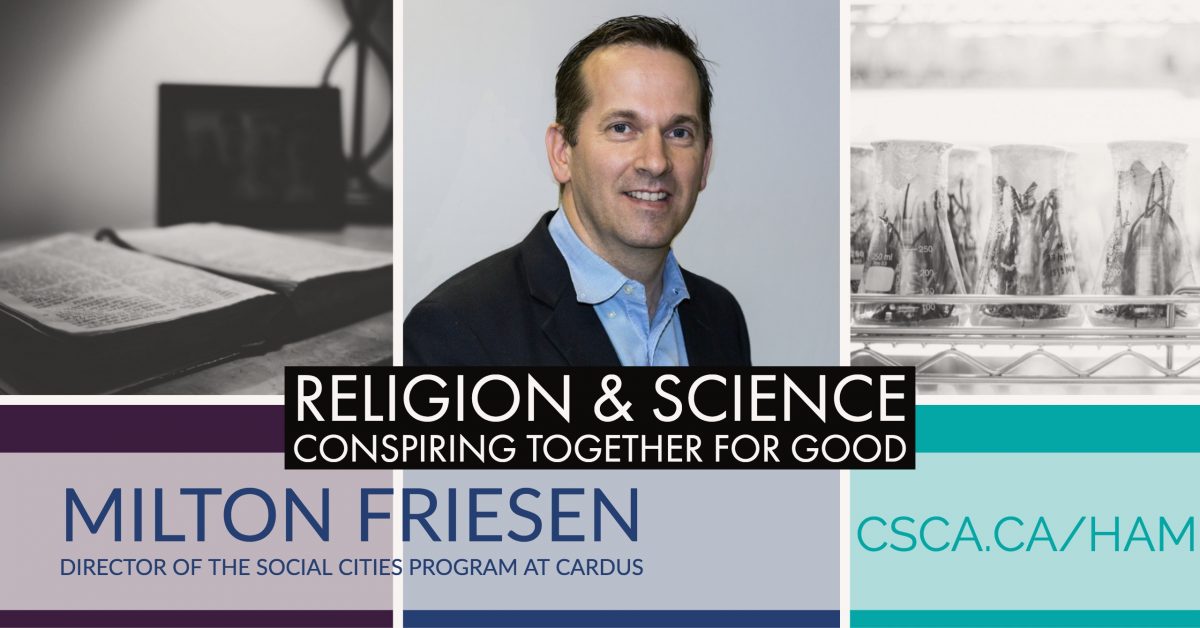FREE PUBLIC EVENT: The Hamilton Science Faith Forum and the CSCA present a lecture by Milton Friesen (M.A. Culture and Ethics, Trinity Western University).
Find more events in Hamilton, ON
Religion & Science: Conspiring Together for Good
Contemporary Canadian science policy overlooks how religious communities are part of the public engagement landscape that science policy wants to engage more effectively. The recent Canadian Science Policy Conference (2017) didn’t directly address religious communities, but did give considerable attention to the public awareness, engagement, and support that will be needed to pursue funding support and good will for research and development of AI, climate change adaptation and mitigation alongside core scientific work. There is an opportunity today to not only address the traditional faith/science debate over ultimate beliefs, knowledge content, and sources of authority; but also to think pragmatically about how science needs the support of the religious public, and how religious communities need to be more honest in acknowledging how deeply indebted they are to science – modern life is not conceivable without science and the technologies that have resulted from that science. The question becomes, from this vantage point, a matter of the possibility for institutional collaboration as each makes respective contributions to the common or public good they serve.
Milton Friesen directs the Social Cities program at CARDUS. He has served as a municipal councillor and is completing a Ph.D. at the University of Waterloo School of Planning, focused on new ways to measure the social fabric of neighbourhoods. Milton serves on the steering committee of the Thriving Cities Project at the Institute for Advanced Studies in Culture (University of Virginia), and he is a member of the Computational Social Sciences Society of the Americas as well as the Congress for the New Urbanism.
